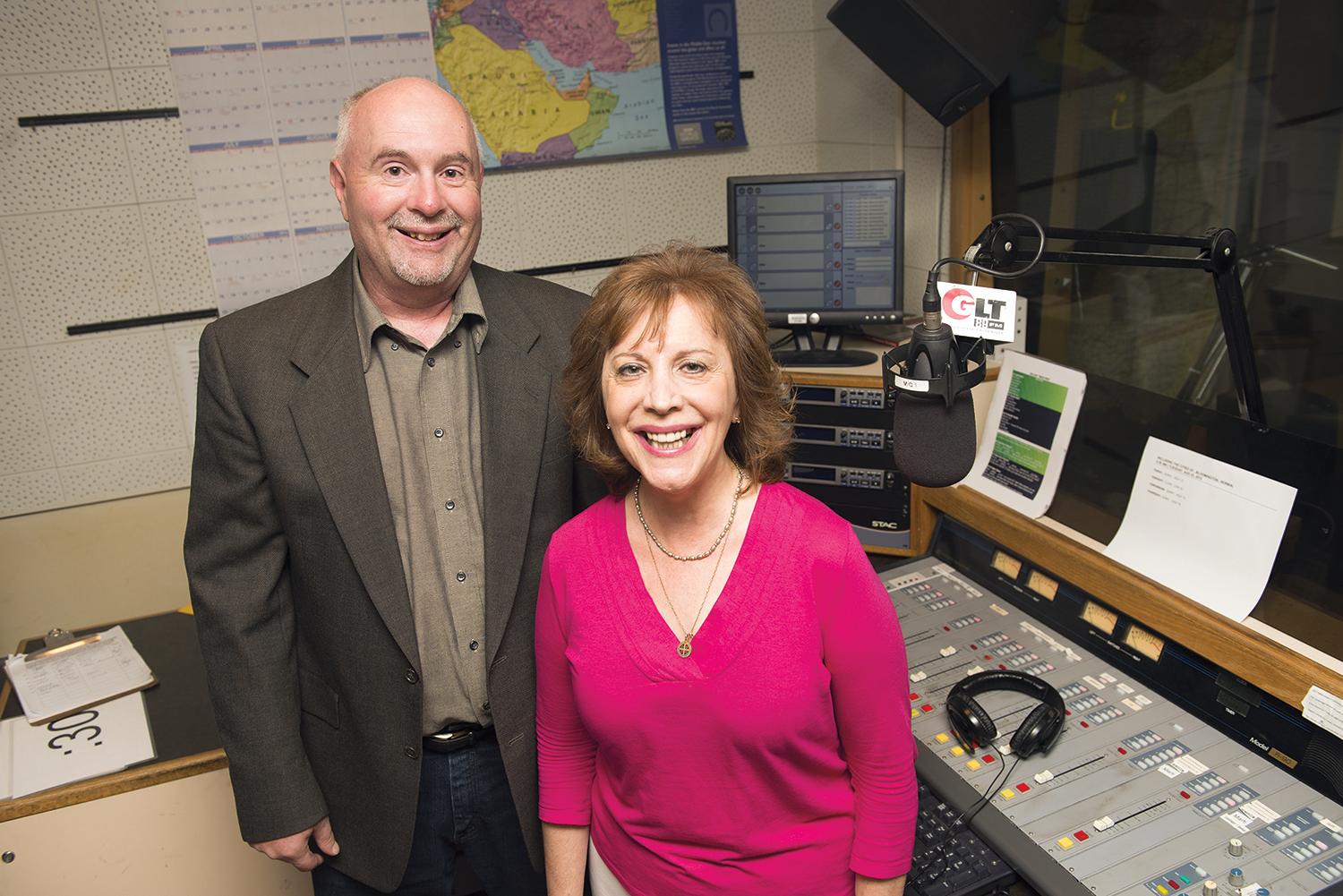The News Department of WGLT Radio earned a Kaleidoscope Award for diversity reporting from the Radio Television Digital News Association. The station was one of only seven national outlets to win the award.
According to News Director Willis Kern, the award represents a body of work geared toward giving voice to everyone in McLean County. “We believe it is our responsibility to tell the stories that are part of our community,” he said. “And we must be on the right track if we are being recognized alongside Al Jazeera America and the Huffington Post.”
Multiple WGLT stories and series have focused on struggles of the underrepresented, including a groundbreaking series on transgender individuals living in the county. Before transgender issues were hitting the front pages of major newspapers and long before Caitlin Jenner posed for Vanity Fair, WGLT turned the microphone to ordinary life as a transgender person. “It was right at the beginning of journalists waking up to gender issues as the next big civil rights front,” said Judy Valente, who spearheaded the series.
Kern credits Valente, who spent most of her career with national media—including The Washington Post, The Wall Street Journal, and PBS—with sparking a dedicated effort toward hearing diverse stories. “We’ve never taken the easy route with news, but Judy brought to us a new awareness of our role in telling stories that are not often heard,” he said.
Valente also kicked off a series titled “In Their Own Words,” which included short segments of people talking about their experiences in McLean County. “We heard from African Americans, a Hindu gentleman, a transgender college student. It was very powerful,” said Valente, who noted that even after the first segment, the station received a call instructing them to stop “stirring up” the African American community. “Just by letting people talk about issues as they saw them—that’s how we were ‘stirring up’ people.” Valente paused for a moment, then added, “That call told me we hit a nerve.”
A defining piece for the station came with the five-part “Police and Race in the Twin Cities” series, put together over several weeks by Valente and fellow reporter Jon Norton after the events in Ferguson, Missouri.
“Almost immediately [after Ferguson] we started hearing from African American members of the community who said unfair treatment has just been a fact of life that they’ve dealt with,” said Kern. “The fact that people who live here feel this way told us that there’s an issue that needs to be addressed, even if they are not shooting people.”
Valente agreed that feelers she sent to the community came back with stories that sounded similar. “These are otherwise upstanding stalwarts of the community, business owners and leaders who were talking about their encounters with the police being intense and frightening,” she said.
Valente and Norton began multiple interviews with community members as well as members of the police departments. Valente rode along with police on traffic stops in Bloomington, and scanned 90 traffic stop videos supplied by Normal and Bloomington police.
The aim, noted Kern, was to form a complete picture. “Our job is to tell the story from all sides, be as transparent as possible, and challenge opinion when it needs to be challenged,” he said. “We’re here to air all views in a professional and responsible way.”
The station’s work garnered praise nationally—with the Kaleidoscope Award and two Edward R. Murrow Awards for journalistic excellence. Valente said she is proud of the awards, but prouder that they indicate the station is on the right track. “We’ve been getting more recognition outside the community for the work than inside,” she said. “Sometimes it’s easier to hear more positive stories than endure shining a light on problems. But how can people deal with a problem if they refuse to even listen to the idea it might exist?”
Valente points to the WGLT leadership, especially Kern, Program Director Mike McCurdy, and Station Manager Bruce Bergethon, for having the courage to run multiple series on tough subjects. “You can have all the great ideas in the world, but without support, they go nowhere,” she said. “Here, they understand that the greatest job of the media is to give voice to those whose voices may not be heard, and to be an instrument for change in the community.”



